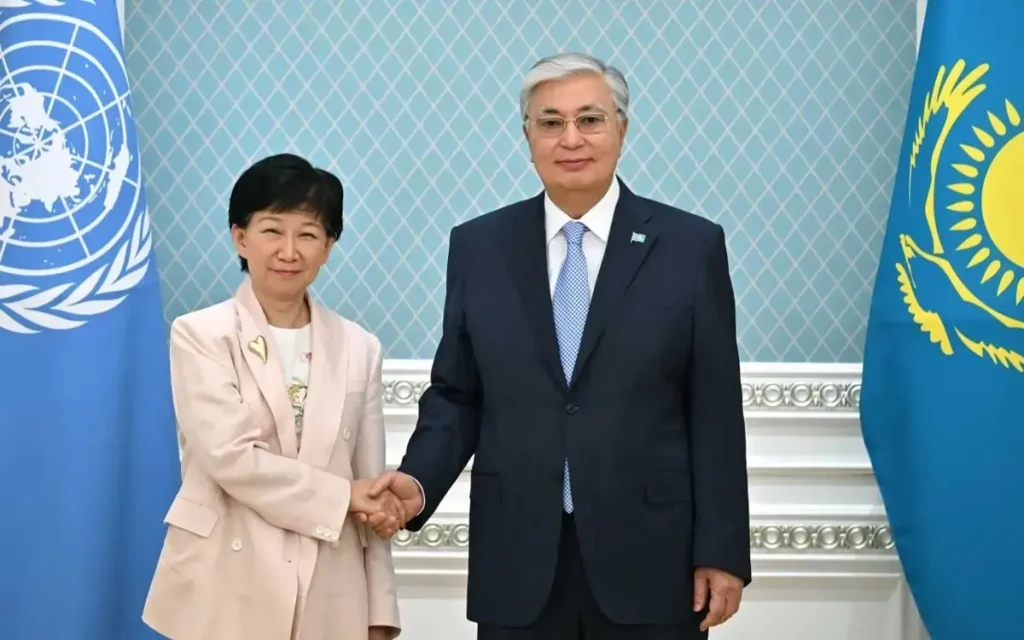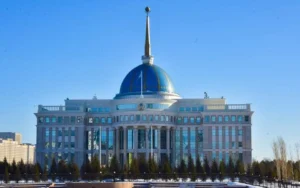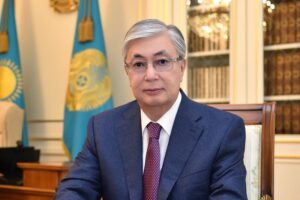Kazakhstan Reaffirms Unwavering Commitment to Nuclear Disarmament

Astana, The Gulf Observer: Kazakh President Kassym-Jomart Tokayev held a significant meeting with Izumi Nakamitsu, United Nations Under-Secretary-General of Disarmament Affairs, as reported by NHC. The discussion centered on the prospects for enhancing multifaceted cooperation between Kazakhstan and various UN institutions, with a focus on ensuring regional and international security, as well as advancing nuclear disarmament and non-proliferation.
During the meeting, President Tokayev emphasized the indispensable role the United Nations plays in addressing contemporary global challenges, stating, “There is no alternative to the organization.” He reiterated Kazakhstan’s firm commitment to the disarmament and non-proliferation of weapons of mass destruction, particularly in light of ongoing global events that heighten concerns about these issues.
“These issues are particularly acute and important in the context of the ongoing events in the world. Obviously, it cannot but cause concern,” Tokayev noted. He also highlighted that tomorrow marks the International Day against Nuclear Tests, a day of profound significance to Kazakhstan. “This important day reminds the entire humanity of the dangers of nuclear testing and the use of nuclear weapons. Kazakhstan is committed to close interaction with the UN institutions and regards this organization as a unique and universal international structure,” Tokayev added.
Izumi Nakamitsu commended Kazakhstan’s leadership in the global process of nuclear non-proliferation and acknowledged the country’s growing role as a middle power on the international stage. The dialogue between the two leaders also included an exchange of views on current international issues.
It is noteworthy that in February of this year, the Carnegie Foundation and the Council on Strategic Risks in Washington, D.C., discussed Kazakhstan’s leadership in reducing nuclear and biological risks over the past 30 years, further solidifying its position as a key player in global security matters.


